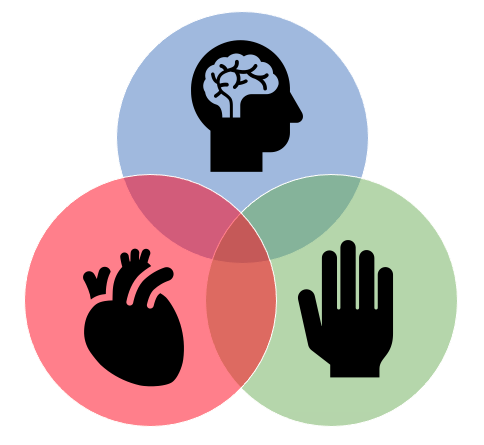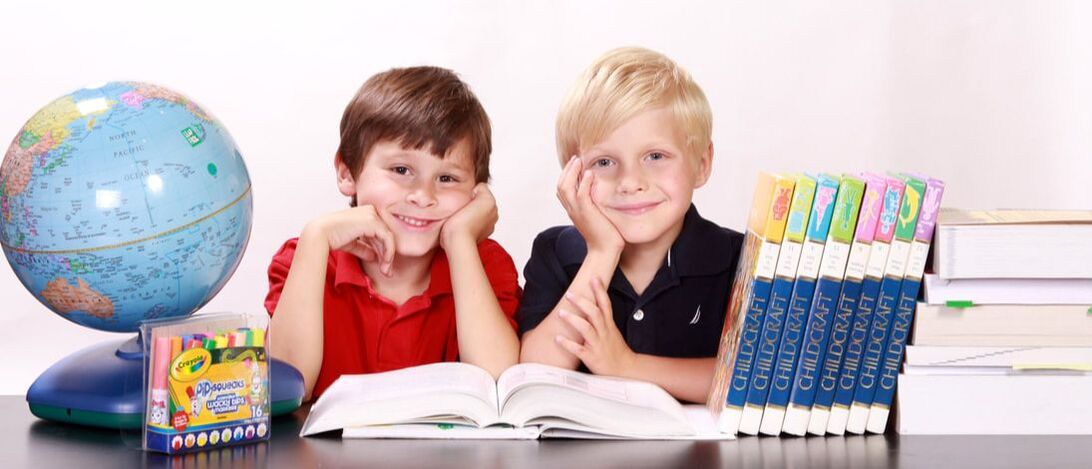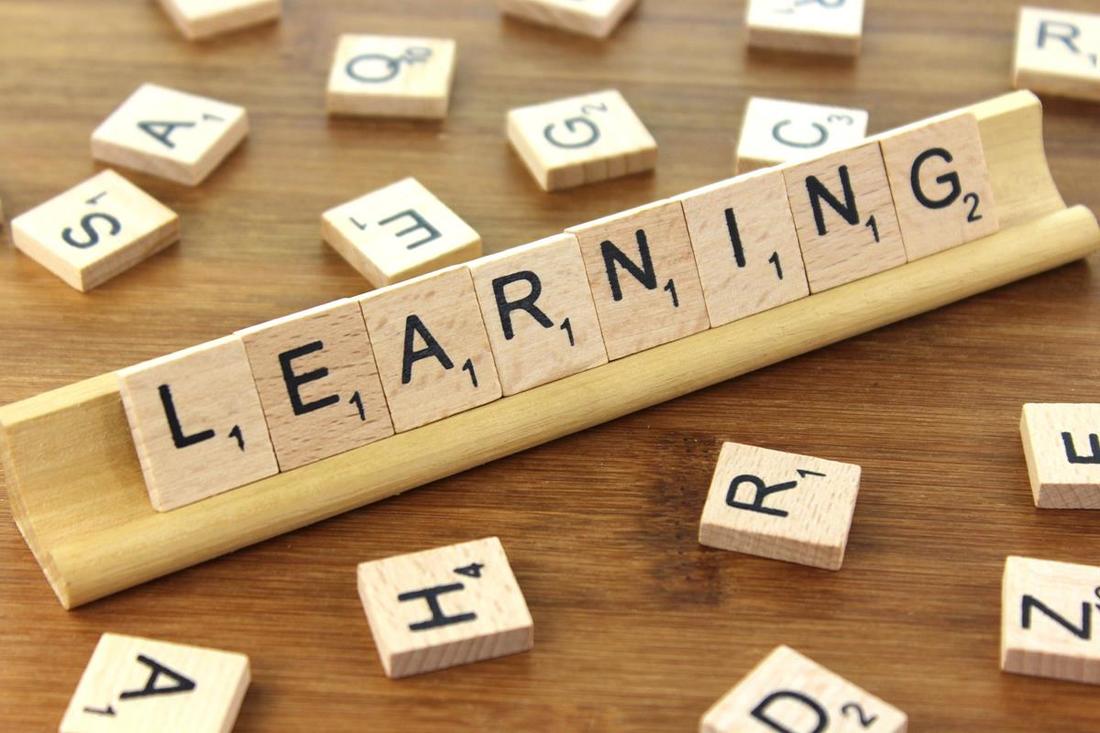|
inspiration /ɪnspɪˈreɪʃ(ə)n/ the process of being mentally stimulated to do or feel something, especially to do something creative. If you are trying to develop a dynamic learning programme for your children at home, then you might like to consider the notion of what I call the 'learning trinity' - three essential elements that help inspire and engage children in the learning process - the HEAD, HEART and HAND. Let's take the definition of inspiration above - each of these three elements are inherent in it….. the process of being mentally (Head) stimulated to do (Hand) or feel (Heart) something. What you are aiming to do in your homeschooling programme then, is to create activities and experiences that bring all three components together synergistically so that your child / children can experience what I like to call the SWEET SPOT of inspired learning. How great would it be if for much of the time your children are enthusiastic and excited about their learning (heart), focussed on asking questions and solving problems (head) and highly motivated and creative (hand). Each of these three elements requires a separate blog post as there are so many elements within each but for now I would like to describe a few ways you can promote each element in your home learning programme:  HEAD If you want to develop your child's cognitive abilities there are a number of things you can do. Some are a more formal process others can be done incidentally during the day or when the opportunity arises (serendipity). You don't need to do all of these things at once and they don't have to be an onerous task. They can be done any time of the day not juts in 'formal' learnimg situations.
 HEART There are many ways that we can support the emotional development of children. The following ideas and strategies can help:
 HAND This dimension focuses on behaviours that can help your child(ren)'s management of themselves in terms of being organised, managing time, setting goals and establishing routines.. The more independent and autonomous you child the more resilient they can become. So:
Each of these domain will be explored in greater depths over the coming weeks but the links provided in each section will also provide extra resources for those things you are interested in. If you want more ideas around study you can visit the Studyvibe and Research Safari websites.
0 Comments
Getting the organisation right - how will you manage your daily learning routine? I have had a number queries from parents new to homeschooling with regard to setting up your home environment to promote effective learning. There is no right or wrong way to do this and every home environment / situation is different, so it is about finding the right formula for you and your children. The following hints and tips may help get you started: ROUTINES AND SCHEDULES While routines are extremely important and help children learn valuable organisation and time management skills, you don't have to try and replicate the timetable that your child followed at school. These timetables are more about addressing organisational structures than creating a learning programme that reflects the 'learning rhythms' of your child. Spend time in the first couple of weeks working out with your children when they learn best. When are their energy levels high? When does their energy flag? How long is their attention span? When are they most focussed. Once you know these things you can then determine which subjects are best taught when. Negotiate the learning programme with them so that both you and your children feel empowered by the process and your child's learning is optimised.. If you find after a week that is isn't working, then change it until you find a formula that works for you both and achieves the learning goals you have set. It might be that your child wants to do some work over seven days rather than five and make their learning time shorter during the week. If that is something you can agree to (and it fits with your family schedule) then do it. If you have more than one child you may organise so that you do some laser teaching with one child while the other works on their own and then swap. If you are working with other groups in the community or using tutors etc. then these activities will formalise the schedule a little more than if you were home all the time. LENGTH OF LESSONS There is a great deal of research that suggest that around 20-25 minutes is the optimum time for children to focus (especially in the younger years). This follows a very well known and widely used technique called The Pomodoro Technique (find our more here). You may want to 'chunk' lessons into these shorter time slots and have more of them during the day, with a smaller break in-between. As long as you cover your target learning goals it doesn't matter when children achieve them. (You don't need to replicate lesson lengths your children are used to in school.) QUALITY OVER QUANTITY Your child's learning day doesn't have to be as long as the traditional school day. Focus more on the QUALITY rather than QUANTITY of time spent. Often children are doing 'busy work' to allow the teacher to monitor other students or if they finish early they get given more of the same to work on or can 'play in the corner' or read. If your kids are 'on a roll' and get through their allocated work for the day then give them a choice to 'get ahead with tomorrow's work, keep working on a project or do some reading or exercise or play a board game. Try to avoid rewarding with TV or computer games. These activities could be used as credits for days, for example, when your child is having a bad day and wants to trade the credits for some down time. (Make sure they have earned the credits first before they can trade them). COVERING THE CURRICULUM While this will be covered in more detail in a future post, I know some parents are worried that they won't address all of the required curriculum content for their child. If we take a primary class (without any major emphasis or focus) one might consider the following subject allocations (these are just a suggestion, not prescriptive)
This gives us 26 lessons over 5 days or five lessons per day (approx. 5 per day). If you created a card (or used a post-it note) for each lesson to be taught during the week (e.g.26), or had, say, fridge magnets that represented each lesson, you and your child could negotiate the number and sequence of each lesson / activity for the day and week. They may, for example, want to do all of the science in one go or spend a whole Friday afternoon doing coding. These cards / post-it notes/ fridge magnets could be displayed prominently in the kitchen, study area or on fridge and reflect the day's learning schedule. As each lesson is completed they are removed so only the lessons yet to be completed for the day (or week) remain. This can also provide a visual representation of their achievement / progress and indicate what is left to be completed for the week.
 How to Protect Your Kids Online By Caroline Chambers Whether you are a parent or a teacher, this article has some very useful tips on how to keep your child (or your students) safe online and is well worth the read. It includes topics such as:
 The Church in Auvers-sur-Oise, View from the Chevet (1890) w740 x h940 mm, Vincent van Gogh, oil on canvas The Church in Auvers-sur-Oise, View from the Chevet (1890) w740 x h940 mm, Vincent van Gogh, oil on canvas Submitting an engaging visual art portfolio/body of work for assessment is one of the most important parts of studying visual art. Each artwork needs to show your creativity, understanding of your coursework, and the ability to develop an idea. By following our easy to understand guide, you'll be able to lift the quality of your work and make it stand out to achieve a better overall grade. 1. Tell a story Good art engages your viewer, but great art tells them a story. Think about how you can tell your audience a story by using all of the tools you have available: symbolism, scale, perspective, shape, harmony, etc. Use all of these (and more) to create a powerful and engaging piece of art. 2. Engage with your unit outline Art is creative, spontaneous, and intuitive, so following coursework may seem limiting. It is quite the opposite however, as it gives you clear direction, and tells you what you should focus on. The first thing to do with a new theme is brainstorm - it is an easy way to create new ideas and explore your topic. This, of course, should be done after reading your unit outline. It is written for you for a reason, so use it! 3. Use different mediums It is important to work with your strengths when choosing paint over pencil, or vice versa. Only using one medium limits your potential, however, so think about which medium best suits your current project work - be careful to not choose the same one every time. Being multi-disciplinary is important, even in art. 4. Be inspired Inspiration comes to us in many ways and in many forms. Why not let Van Gogh, Monet, Dali, and Whiteley (to name a few) help - engage with their art, and see if their techniques, skills, or subject material can inspire and change the way you approach your own work. 5. Less is more Simplicity in your artwork is a good thing - if a painting is too 'busy', it can be distracting, chaotic, and pull focus in too many places. Your main idea or subject should be clear enough without additional information to convey your theme and/or message. 6. Talk to your teacher and classmates Listening to your intuition is important in art, and each decision you make will influence your finished piece. However, the advice and critiques of others will offer you an objective view of your work and inform your process. Accepting others' critiques of your art is hard because it is so personal, but it is also necessary. 7. Explore new ideas If your work consists only of painted landscapes, try a portrait. If you love figure drawing, try a cityscape. Sticking to what you do best is easy, but the way to grow as an artist is to push yourself to learn more and increase your skill set. Step 3 talks about using different mediums, but you should also be changing your subject matter, as it shows you have put considerable thought into your topic. 8. Include your mistakes Creating art is a process, and just like maths, you get more marks by including your 'working out'. A failed idea is never a failure: it is an important step in your visual inquiry process, and shows growth and development in your ideas. 9. Be consistent / Don’t rush Everyone works differently, but the amount of thought and effort put into your work depends on you . The more time and testing put into your work, the better the finished result. As an art student, you've probably realised by now that art is the subject that needs the most of your time if you want to excel at it, and that's OK. Sometimes art is impressionist and spontaneous, but if you rush it, you skip some of the creative process and don't maximise your skills (or potential). 10. Know when to finish Much like step 5, knowing when to finish is another important decision to make to prevent your piece from being 'overworked'. Leonardo da Vinci said 'a painting is never finished', and while this may be true in some ways, knowing when to put down your pencil or paintbrush is an important part of producing art. More paint does not necessarily mean better quality (or grades), so don't ruin all of your work. Kano Eitoku. Cypress Trees, 1590 - colour on paper with gold leaf. Tokyo National Museum, Tokyo Japan.
Accessed via http://libmma.contentdm.oclc.org/cdm/compoundobject/collection/p15324coll10/id/153737 We are always being told about the importance of nutrition to stay healthy and is especially so in the teenage years when you are under so much pressure with school, job, study, exams, sport etc. The only trouble is finding quick and easy recipes that will give you maximum nutritional benefit and still taste really great. Journey to Health for Teens provides great quick and easy recipes. The creator, Leanne Costa, is a home economics teacher in a high school (and has three grown daughters) so knows about creating delicious healthy meals for young adults. You can subscribe to the You Tube Channel JTH4teens or here are three videos to get you started on creating healthy snacks or you can follow JTH4teens on Facebook and Instagram.
 For most people, when you see a book about Winnie the Pooh, you'll cast your mind out to childhood stories, Pooh and his cute animal friends, and a simple bear who, more often than not, has his hand (or head) in a honey jar. However, if you look closely at the conversations that Pooh has with his friends, there are some very wise and profound words of wisdom that come from this furry fellow and they are as poignant (even more so today) than when A.A. Milne first wrote the stories. There are some excellent teaching moments that you can create through discussion of these quotes. Listed below are some that you might like to use with students or, if you are reading this as a student, think deeply about what is being said here. It has significance for all of us. On trusting yourself: Promise me you’ll always remember: You’re braver than you believe, and stronger than you seem, and smarter than you think. On the importance of the little things: Sometimes, said Pooh, the smallest things take up the most room in your heart. On living in the present: “What day is it?” “It’s today,” squeaked Piglet. “My favorite day,” said Pooh. On the futility of worry: “Supposing a tree fell down, Pooh, when we were underneath it?” “Supposing it didn’t,” said Pooh after careful thought. Piglet was comforted by this. On being yourself The things that make me different are the things that make me. On gratitude Piglet noticed that even though he had a very small heart, it could hold a rather large amount of gratitude. On stepping out of your comfort zone You can’t stay in your corner of the Forest waiting for others to come to you. You have to go to them sometimes. On clearing your mind of all thoughts (mindfulness) Don’t underestimate the value of doing nothing, of just going along, listening to all the things you can’t hear, and not bothering. On the value of dreams I think we dream so we don’t have to be apart for so long. If we’re in each other’s dreams, we can be together all the time. On love “How do you spell ‘love’?” – Piglet “You don’t spell it…you feel it.” – Pooh Image ref: https://c1.staticflickr.com/4/3061/3066814584_0d0db6817c_b.jpg If you are looking for some great free graphics that highlight words in a range of formats, then Blue Diamond Gallery is an easy-to-use free program. There is an A-Z list of words you can choose from in each of the three graphic styles: Dictionary Pictures, Tablet Words and Wooden Tile Word Pictures. Once you have selected the style and word you need, you are provided with details of the author and attribution rights, meaning the picture can be copied, saved, and redistributed freely.
There are also purchasing options available if you wish to purchase higher-resolution pictures at a larger size. For educational purposes, this website is an excellent introduction into thinking about the visual placement of titles and words, with the resource also being a a great model for what students could create themselves. Writing Tips Oasis is a site designed to support writers to make their ideas a literary reality.
Hiten Vyas, the founder of the website, states that they want to "provide the very best writing tips, writing advice, and guidance to help you become the best writer you can be, whether it’s as a published author, a freelance writer, a business writer, a journalist, poet, or as a blogger." They also want to help you improve not only your craft, but develop the business skills needed to sell your work to the markets you choose to. By reading regular blog posts about different aspects of the writing process, you gain valuable knowledge and practical advice. The extensive collection of author interviews also gives you insight into what inspires them and how they nurture and develop their craft. All resources are free, and current and blog posts are added regularly. If you are a teacher of English, Teacher Librarian, or a students who wants to hone their writing skills (with the possibility of publishing) then this site is definitely going to help you get published. Featured blog post - Protecting Children's privacy - a Guide for parents, Carers and Educators11/18/2016
|
| Studyvibe |
Proudly powered by Weebly









